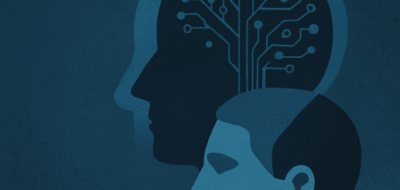My article in HBR published 20th of September 2017.
Nowadays robotic discussions often involve the consequences of the presence of machines in our workplaces. And yet Artificial Intelligence in the form of humanoid means complex problems much more extensive. Because our lives are not just work …
Our life is driven by a search for intimacy, emotions and communication with others. And that’s all there is in sex. Is there a next wave of a sexual revolution but this time driven by a Artificial Intelligence?
In a Ex Machina movie, we watch how the feeling arises between man and artificially created beauty. The extraordinary, humanoid character from Alex Garland’s film is fascinating because, like us – expresses emotions, asks questions, becomes a partner for subtle considerations. And to do everything neatly moves and what is important – is not deprived of sexual attractiveness. The whole story is primarily about the interesting question of future relations between people and machines. Relationships that can become increasingly complex, embodying the enormous scale of emotions, desires, and fears.
Brain ahead of the muscle
The idea of a machine, sex-robot or doll – as a sexual gadget – is obviously not new. However, it has only been a few years since erotic inventors have begun to wonder how to refine sexual products using the latest available and potential near-future technology. …

Link to the full article (in Polish)
Related articles on my blog:
– Machine Learning. Computers coming of age
– According to our computers … You don’t exist
– What a machine will think when it looks us in the eye?
– Fall of the hierarchy. Who really rules in your company?
– Blockchain has a potential to upend the key pillars of our society










TommyG
Hope that never
Oscar2
I think sex robots could be great for some things, such as using sex robots for a brothel instead of real women is a great idea. However some things are disturbing as a mentioned in the article such as pedobots where the robots take the form of underage girls. It’s so depressing because libfems would probably defend the creation of pedobots just like they defend porn where a large chunk of it is pretending to have sex with underage girls and teens. Leading to more little girls getting raped because studies have shown watching child porn makes someone more likely to actually offend. All for a “sex-posi” culture. Ugh what is this world I live in. Where is the feminism I knew and loved
ZoraBora
Every new technology that can provide sexual services takes off at superspeed. I expect once they’ve figured out how to build fully controlled lifelike bodies and AI brains, the first real sex bots will go on sale. Although only sad sacks will be buying the first generation.
Anything with the kind of complexity to handle human sexual behaviour will be able to handle other tasks as well. They’ll get marketed as ‘housekeepers’ or ‘maids’ in the end and become fairly common.
And99rew
The principle. Women are not sex objects. Men need to learn how to deal with their sex drives without turning us into objects. It causes actual problems for us (even if we don’t care about them; it obviously causes problems for them too). Men who see women as objects are less likely to pay us commensurate with our experience or even give us jobs in the first place, and will otherwise undermine our way in the world; it causes problems even for non-hetero or celibate hetero women who never have to put up with a fumbling fuckwit in bed again.
Zoeba Jones
Knowing the human genome is not the only key. Understanding the human Microbiome and its interactions with different substances is also critical. This is why there will be an opportunity across the Agtech. Companies like hashtag#ProteonPharma are well positioned to take advantage of this with our focus on the human Microbiome and investments in bacteriophages.